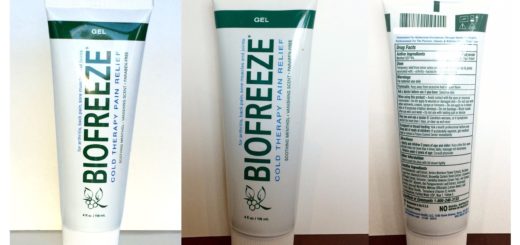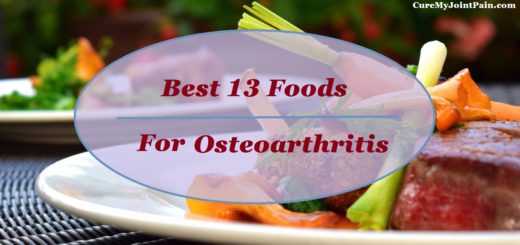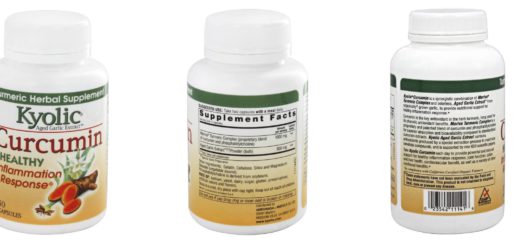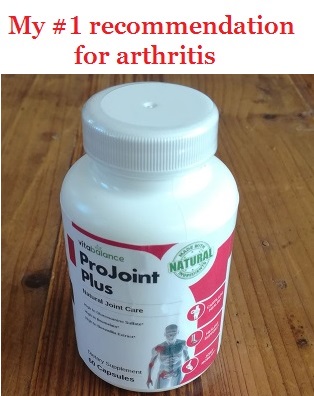Is Glucosamine Good For Rheumatoid Arthritis? (My Personal Experiment)
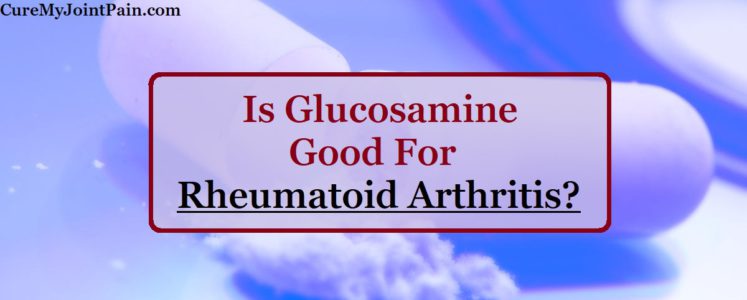
Your surely know glucosamine supplements – they are one of the top recommendations for joint problems. I personally recommend them pretty often.
But is glucosamine good for rheumatoid arthritis?
Yes, we do know it’s great for osteoarthritis. In fact – it’s my #1 recommendation.
But RA has a totally different cause – so can glucosamine help in this case? Or is it pretty useless, in terms of benefits?
I tried to find out a clear answer to this question – by making a short “experiment”. So here’s what I did:
- I took the most common symptoms from RA
- I analyzed how glucosamine can improve each
But before I tell you the results, let give you a brief idea about what glucosamine can do – in general.
Top 4 Benefits Of Glucosamine
You can find glucosamine is most joint supplements – so it’s pretty clear that it’s no random ingredient. In fact, it’s one of the most studied ingredients.
Researchers claim it has a lot of benefits, but I will only mention the major ones – the ones that I know about:
- rebuilds cartilages
- nourishes the joints
- natural antioxidant
- protects the tissues around the joints
If you want to find out more about glucosamine’s proprieties, I wrote a very detailed article here.
There’s another benefit that I did not mention above, but that’s just because it’s a minor one – anti-inflammatory.
I’m saying this because glucosamine isn’t very good at fighting inflammation. After all, I’ve seen that myself – glucosamine supplements never decreased my swollen joints.
So in my opinion, the 4 benefits I mentioned above are the best glucosamine can do.
How I Did This Experiment
Now, it’s time to move on to my little “experiment” with glucosamine and RA. Here’s what my plan was:
- Use a pure glucosamine supplement for about one month
 Take each symptom of RA separately and see how it improves in this time
Take each symptom of RA separately and see how it improves in this time- See how this supplement helped me overall
It sounds pretty simple, doesn’t it?
I was counting on the fact that glucosamine improves OA symptoms pretty fast. So if it really works, it shouldn’t need more than a month in RA either. That’s why I didn’t choose a longer period – only one month.
The supplement I chose: When deciding what product I should use, I wrote down 3 criteria that it should meet:
- contains only glucosamine – additional ingredients could influence my final result
- uses the sulfate form, not the HCl
- the daily dose is around 1500 mg
According to these, I chose a product from 365 Everyday Value – Glucosamine Sulfate Vegetarian (see photo). I didn’t try it before for OA, but it seemed just what I needed for this experiment.
Chapter #1 – Glucosamine & Inflammation
Short answer: It doesn’t help. Though glucosamine has some anti-inflammatory proprieties, I felt absolutely no improvement at this chapter.
The whole story: I took that supplement 3 times a day, according to the label’s recommendation.
Well, when it comes to inflammation, there was no to little progress. Here’s what I mean:
- most of my affected joints remained very swollen
- my fingers and toes were still hard to move
- the hands were still very painful (they were the most affected, that’s why I mention them)
However, I don’t mean to talk much about the pain – that’s another chapter.
But pain and inflammation usually go hand in hand – the inflammation is the cause of pain. So I have to mention them together.
Therefore, in this month when I took the supplement, the swelling from my body didn’t decrease almost at all. This means only one thing – glucosamine isn’t good for inflammation. At least in my case, it wasn’t any good.
Chapter #2 – Glucosamine & Pain And Flare-ups
Short answer: It doesn’t do a lot. My pain didn’t get any better and my RA flare-ups were as often as before.
The whole story: Despite taking the pills, I felt no change when it comes to pain. Here’s what I mean:
- the pain from my hands was still the worst – about 6 and it didn’t get any better
- I still had flare-ups every 3-4 days
- I didn’t feel any better overall
As the swelling from my joints didn’t decrease, it was pretty obvious that my pain wouldn’t decrease either.
But unlike most supplements (that would decrease my pain even a bit), this supplement didn’t do absolutely a thing.
Now, I don’t blame the supplement itself. It’s just that glucosamine can’t relieve RA pain – for me that’s very clear now. No matter what studies say about it, it doesn’t relieve RA pain at all.
Maybe I shouldn’t speak in general – but judging after my situation, I doubt it could help anyone with RA.
Chapter #3 – Glucosamine & Stiffness
Short answer: It helps partially. I could feel an improvement, but it wasn’t a major one – maybe 30% better.
The whole story: I was kind of expecting to see a bigger improvement at this chapter – compared to pain and inflammation. Why I’m saying this?
Because glucosamine is good at increasing flexibility – at least when it comes to OA. RA also causes stiffness and loss of flexibility – so glucosamine should help this too. And it turned out that I was pretty right:
- my morning stiffness still existed everyday, but it didn’t last that long (about 30 minutes, compared to 50 before)
- I could move my arms and legs a bit easier – they were more flexible
However, the change wasn’t a major one. But at least my stiffness did get better overall.
So glucosamine does improve RA stiffness, even a bit. It doesn’t relieve it completely, but there was a visible change.
Now, I wouldn’t recommend you a glucosamine supplement just for that – it’s not the best solution you can get. But it does work – even partially.
Chapter #4 – Glucosamine & Protection
Short answer: It really helps. Glucosamine does protect the joints against a further damage – which is pretty common when you have RA.
The whole story: So you might be wondering – what exactly do I mean by “protection”?
Well, people with RA are more likely to get all sorts of joint complications:
- cartilage damage
- joint tear
- osteoarthritis
These are just the most common examples. And if you want a real situation – it’s my case.
I developed a secondary OA that was caused by the RA I had for years. The RA damaged my knee cartilages, so they were starting to wear off. That’s how my OA appeared – you can read the whole story here.
So from all the articles I read, glucosamine does protect the joints from further damage:
- it rebuilds and protects cartilages
- improves joint lubrication
- fights oxidative stress and free radicals
Now, I didn’t notice any change when it comes to protection – this month I mean. But it’s something on the long term. So judging after the benefits of glucosamine, it should help a lot at this chapter.
My Verdict – Is Glucosamine Good For RA?
Judging after my experiment, not really. It has a few good points, but overall – there are no major benefits:
- Doesn’t improve the pain
- Doesn’t decrease the swelling too much
- And last but not least, it doesn’t prevent arthritis flare-ups or make them more rare
As I said before, it did help me in 2 chapters:
- Decreased my morning stiffness – not completely, but there was a change
- Protects against complications, like cartilage damage or a secondary OA
But at the end of the day, its benefits aren’t that significant. I mean, other supplements can help a lot more – not only in terms of protection and decreasing stiffness.
Therefore, it’s not worth using glucosamine for RA. Considering what benefits it brings, it’s really not worth it.
Turmeric also protects the joints and decreases the stiffness – but it also helps the pain and inflammation. So this herb remains my #1 recommendation for RA.
This experiment showed me how far glucosamine is from turmeric – at least for RA. So I wouldn’t recommend it too soon.
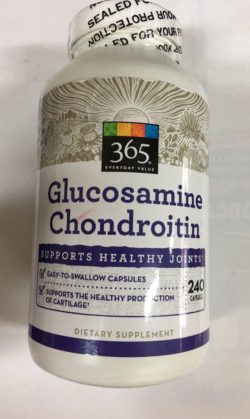 Take each symptom of RA separately and see how it improves in this time
Take each symptom of RA separately and see how it improves in this time
